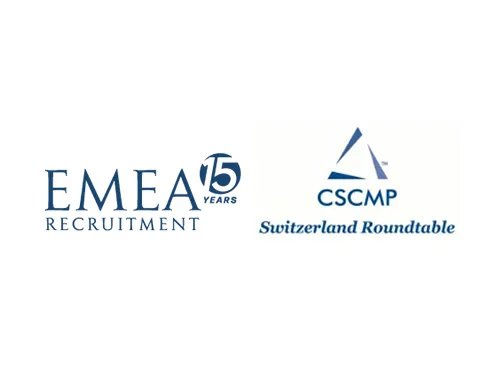
EMEA Recruitment Partners with CSCMP Switzerland Roundtable
EMEA Recruitment is honoured to announce our official sponsorship of CSCMP Switzerland Roundtable.
The Council of Supply Chain Management Professionals is an organisation that has organically grown to become a leader in Supply Chain networking, predominantly for Swiss-based Logistics and Supply Chain Management professionals.
Its mission is to connect like-minded Supply Chain professionals, develop their leadership and management skills, and further educate those looking to learn more about the Supply Chain discipline.
We have proudly sponsored six CIPS (Chartered Institute of Procurement & Supply) Switzerland events, the latter ones in partnership with CSCMP Switzerland Roundtable. We are delighted to be continuing our professional networking within the local market.
Most recently, we sponsored the Competitive Advantage conference in Zug, back in May 2022, exploring how to link Procurement and Supply to corporate direction, top-level strategy and executive decisions.
The annual event brings together top P&SC professionals from prestigious organisations, such as Biogen, Unilever and Hitachi Energy.
Neil Cope, Director of our Procurement & Supply Chain recruitment team in Switzerland, said: “We are delighted to be sponsoring and work in collaboration with the CSCMP Switzerland Roundtable.
“Our Procurement & Supply Chain recruitment division has gone from strength to strength in the Swiss market. A core component of that has been the networking collaborations we have built – the CSCMP organisation has organically grown and is a leader in the Supply Chain network.”
He added: “We look forward to working with them and assisting in the hosting of future events held in Switzerland.”
To hear more about attending future events, please reach out to Neil: [email protected]
In December 2022, Neil conducted an Executive Interview with Helmut Leitner, Board Member of CSCMP Switzerland Roundtable and Founder of Heliblick, a management consultancy that developed the iBsing framework.
You can read the full interview on our website: https://www.emearecruitment.com/executive-interviews/helmut-leitner-founder-of-heliblick/150
To find out more about CSCMP Switzerland Roundtable, including membership options and future events, please visit its website: https://cscmp.ch/

Successful Hiring in an Evolving and Competitive Market
Over the last quarter, we have seen 14% inflation in the Netherlands. However, we have seen a buoyant market, despite a rather unstable financial climate.
Even with the cost-of-living crisis, hybrid vs. office debate, and a looming recession, we are still seeing candidates change roles.
It is still a candidate-driven market, so companies are having to put forth a strong value proposition to attract the right talent.
- Is your business financially in line with the market?
- Are you offering the right benefits?
- Do you need to re-evaluate your recruitment process?
- How is the candidate’s journey?
These are all questions businesses must answer before entering the marketplace.
There is a growing concern in the market, due to inflation, which has caused a rise in salaries. Businesses may have to offer competitive salaries outside of their yearly reviews to current staff for retention, alongside competitive pay to attract new staff.
Candidates are also looking for a business that can offer career development and provide a flexible working environment, which allows for a good work-life balance. Therefore, hybrid working is key to successfully retaining staff.
Recommendations:
- Make a clear choice - Is your compensation in line with the market and/or does your business have enough differentiators to compete with the marketplace?
- Career development – Are you creating an environment where candidates can grow and progress their career?
- Flexibility – Since the pandemic, the market is not just driven by high compensation, but also hybrid working.
EMEA Recruitment support
EMEA Recruitment is focused on working closely with both passive and active candidates. The aim is to ensure that we are clear on the drivers and motivators for candidates to move. This way, we are sure that the candidate we put forward for your roles are aligned with your value proposition.
Currently, most of our roles are filled through the headhunt approach, with candidates who may not be currently looking for a role. This success results from the insight we gain into our candidates’ longer-term aspirations.
Our focus:
- Career consultation and advice – Understanding the vertical and horizontal growth of candidates.
- Focusing on the employer and candidate journey – Understanding the timeline of the recruitment process to maximise chance of securing the ideal candidate.
- Understanding what makes a candidate stand out.
- Understanding a company’s value proposal and what makes a potential employer unique.
For more information on our approach, please contact Michael Bentil, Senior Consultant, in our Finance & Accountancy recruitment division in the Netherlands.

Q1 2023: HR Netherlands - Recruitment Market Review
As we move into the New Year, it’s been interesting hearing the thoughts of our network regarding their recruitment plans.
We may be experiencing high levels of inflation - as well as some economic challenges – however, the tone amongst many of our clients remains positive.
Although there are economic uncertainties, we still have a labor market with significant competition for talent and individuals who still have an appetite to explore new opportunities.
We ran a poll last month asking our network if they would consider moving roles in 2023 - 71% said they would. Although there may be a perceived risk attached to taking a new role, making a move in this market often accomplishes a substantial salary/package increase, so remains attractive to many.
If we compare the approach to recruitment versus last year, we have seen an even greater emphasis on headhunting - especially the need to reach out to passive candidates. Those interested in a career move no longer need to apply for roles, as they are proactively contacted about new opportunities, so including this approach in your sourcing strategy is essential.
In terms of market trends, we have seen an uplift in demand for specialist HR jobs in the Netherlands, including HR analytics. Many organisations continue to experience significant digital transformation and are looking to data to drive better business decisions. The use of HR analytics - especially talent/workforce analytics - is helping organisations tackle some of the key issues around talent management and retention.
We also see an increase in the number of reward opportunities in the market, as organisations review how they compensate employees in a bid to retain top talent.
If you’re hiring into any of these areas in your business in 2023, we can help you find specialist talent. We would also like to discuss some of these topics further with our network, so please get in touch with Katie Insley, if you’re interested in market insights as we enter a New Year.
Latest Event
Driving your ESG Agenda with Responsible Rewards
On the topic of Compensation and Benefits, we had the pleasure of hosting our quarterly event with guest speakers Xavier Baeten, of Vlerick Business School, and Frederic Barge, of Reward Value, who shared their insights and expertise in the field of Responsible Reward.
Attendees were introduced to a wide range of Sustainable Development Goals and a Responsible Reward framework, giving steps to follow when modernizing a remuneration policy to drive a company’s Environmental, Social and Governance agenda.
This was coupled with a deep dive into executive compensation and how developments in the current model can act as a catalyst of social change.
A recording of the event is available, so do reach out to Katie Insley, Associate Director in our HR team in the Netherlands, via email: [email protected] if you’d like to receive the link.
At EMEA Recruitment, we operate as a true partner to our clients and are keen to ensure topics covered in our events are of value to our network. We are therefore always keen to receive your feedback on topics you’d like us to address in the future.

Quarter Performance: Procurement & Supply Chain - Switzerland
Despite the obvious external challenges being faced by all in our disciplines, we continue to see a robust attitude from our client base towards bringing in new talent.
Across the quarter, we saw an increase of successful hires (up 12% YOY). The standout industries for us were life sciences and FMCG focused.
It is clear the need to help manage current market demands has never been more important or challenging to our clients. We received strong testimonials over the quarter reflecting how we have offset some of these difficulties and helped alleviate the time and cost elements associated.
Energy and sustainability
We are in unprecedented times. The global economic headwinds across both Europe and the wider world have been at the front and centre of not only business, but our personal lives in 2022.
Whether that is rising inflation, higher energy costs or the devastating war in Ukraine, it is almost certain to say there have been profound changes and events that will leave an everlasting mark.
For the Procurement & Supply Chain world, there are many effects, none more so than the efforts and realignment needed in a sustainable approach to sourcing - in particular, how we realign to focus on higher raw material costs.
How has this impacted the recruitment market?
We are potentially seeing a new Procurement category form – that of Energy. We have been asked by several of our clients to work on mandates where the primary focus is to be responsible for sourcing of not only raw materials, but mainly energy and green energy, to stabilise their exposure to such volatile markets.
Whereas previously this may have been wrapped up within Utilities or Facilities, we are now seeing businesses create a standalone function to be leaders in the market in sourcing energy and sustainable energy solutions (such as the green energy or green vehicles sector).
Businesses are investing more than ever in sustainable raw materials and energy suppliers, and are therefore seeking profiles that have genuine, tangible experience of operating within this category and area.
What can you do to stand out?
We are seeing candidates taking a much more proactive approach to the sustainability topic – taking on external courses or extra learning.
Given how relatively new this area of sourcing is, the race to get ahead of the competition and be a leading profile in the Procurement world is well and truly under way.
If you’re interested in discussing Procurement & Supply Chain jobs in Switzerland with one of our recruitment experts, please get in touch with Neil Cope, who will connect you with the relevant Consultant: [email protected]

Q1 2023: Finance Recruitment Market Update - Switzerland
As we enter the New Year, Mark Robinson, Associate Director in our Finance & Accountancy team, shares an insight into the Swiss Finance recruitment market...
First of all, Happy New Year to everyone. We hope that 2023 brings you good health, happiness and success.
The New Year begins with far greater confidence than in 2022, due to the control achieved over COVID-19 and, despite some current market challenges, the economy in Switzerland remains positive, particularly compared to European neighbours.
Inflation is expected to reduce to 2.4% (source: Swiss National Bank) and the country will continue to achieve growth in 2023.
Finance recruitment market
There is traditionally a lull in recruitment in December before an increase in activity in January. This means that companies find recruitment difficult in January, due to the higher level of competition.
However, in 2022, the market was busy all the way up to the festive season, with many companies continuing try to attract talent in a typically quiet period.
We undertook significant research in the last quarter of 2022 about the methods that mid to senior level candidates use when job seeking. This confirmed that professionals find direct job applications an increasingly inefficient and impersonal way to secure their next career move.
We heard strong preference for securing a new role through a recruitment consultancy or through a known network, which partly explains why so many companies are struggling to attract the talent they desire through simple advertisements.
The competition for quality candidates remains strong, with companies struggling to attract interest from the passive market. This is where EMEA Recruitment provides the most value, being able to use our network and market knowledge to ensure that the best - and most suited - talent in the market is made aware of opportunities that fit their career goals, even when those individuals are not actively engaging with the recruitment market.
Market shortage/pressure point
In 2022, one area where we started to see increased recruitment activity at large companies was in Environmental, Social and Governance (ESG), as the new reporting regulations came into effect.
As a new field of reporting, there are very few candidates who already possess this experience, so those individuals are likely to have a wide range of opportunities to choose from in 2023.
Is ESG an active area of recruitment or interest for you? If so, please get in touch. We would be happy to provide further information and share thoughts from the wider market about this subject.
Hybrid working – follow-up to Q4 2022
In our last newsletter, we discussed how hybrid working has brought many positives to the workplace, but has also resulted in some challenges for both employers and employees.
We have seen some pushback against working from home in the USA, most notably at Tesla and Twitter, but also some other companies in the tech sector. However, the vast majority of businesses are still very much on board with developing their strategies to make hybrid working as effective as possible.
We recently ran a LinkedIn poll to ascertain our network’s latest thoughts about hybrid working, as shown below:
What do you think are the biggest challenges associated with hybrid working?
- 60% - Maintaining company culture
- 26% - Onboarding is more difficult
- 11% - Ensuring consistent policy
- 3% - Identifying top talent
Will the challenge of maintaining company culture lead to changes to career development for candidates in the future?
Instead of staying with a company and progressing, these results suggest people are likely to move more regularly, as they are less engaged with their employer.
Those with a significant length of service at one company and a number of promotions on their CV/resume are typically the most desired candidates in the market. If individuals are less engaged with their employer, we are likely to see shorter tenures at companies in the future, so the most desired CV could look very different.
Summary
We are all used to a marketplace that changes quickly and can be affected by a range of global factors, but that does not make recruitment any easier. Switzerland is in a much stronger position than many of its neighbours, so we expect to see another exciting year of recruitment and new opportunities coming to the market.
If you would like to discuss your own career or are recruiting into your team, we would be happy to speak with you. Please contact Mark Robinson: [email protected]
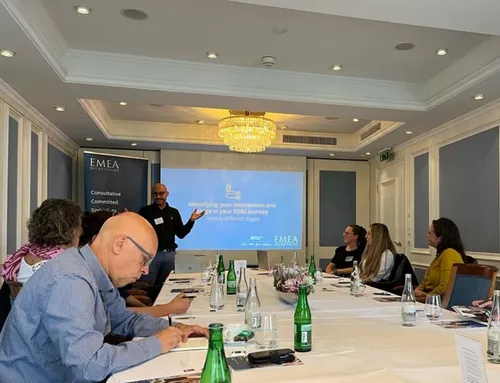
The Relevance of an EDI Strategy - and How to Implement One
Keely Straw, Associate Director, discusses the relevance of an EDI strategy and offers an insight into the ED&I Roundtable we held in Zurich.
In October, EMEA Recruitment partnered with Rubén Ramirez, Group Head Diversity and Inclusion at Syngenta, for our first ED&I Roundtable in Zurich.
This was an exclusive group, where leaders in ED&I across Switzerland gathered to discuss:
- Identifying your momentum and stage in your ED&I journey
- How to design an ED&I global strategy – identify needs for each population and engaging that population
- How to engage leaders and the employee community
- How to identify and measure progress
The session was very engaging, leading to further questions and topics of conversation. The main takeaways from some our participants were:
“There was never a better time to bring EDI to the forefront of strategic business discussions: social and economic change, ESG requirements, and creating a strong sense of belonging are boosting EDI conversations.
“To deliver a strong EDI agenda, we need courageous leaders and sponsorship. EDI also needs to be structurally embedded in our business processes. And no one size fits all: the EDI journey will need to start somewhere - and to be learned step-by-step along the way.”
Michaela Dedic - Diversity & Inclusion Leader at Novartis.
“Hints and insights on how to improve a DEI strategy, how to set up a good measurement system and appropriate metrics, and how to build the narrative of it… and show it to the key stakeholders.”
Piera Marongiu – DE&I Leader - Integrate Include Engage
“An open dialogue around values and needs is key at all levels of the company, as well as strong support from leadership to foster a culture of engagement and trust.
“Progress needs to be measured regularly with the right KPIs to check EDI strategy adapts and also takes business, as well as local, needs into account. This takes time, ongoing commitment, and a long-term perspective.”
Simon Kernahan – DE&I Consultant – Thriving Talent
I have seen in the market that candidates are wanting to work for organisations that align to their values, which includes robust ED&I strategies and polices, as well as sustainability and ESG. But how do you align those values across multiple generations within one workplace? Slight differences in work ethics and priorities can create tension.
We will continue to discuss ED&I topics and look forward to sharing more details of our next event with you soon.
Last quarter was extremely busy across all HR disciplines for EMEA Recruitment. Despite this being a busy time for HR, focusing on end of year/New Year budget reviews, hiring freezes, planning new headcounts, role creation and projects for 2023, we had one of the best quarters in relation to successfully completed assignments.
I would be keen to hear your thoughts across the market and understand if you would be interested in future roundtable events, either dedicated to ED&I or broader HR topics. In addition, I would welcome the opportunity to hear how diverse your employee lifecycle is and how this compares with the general market consensus.
Please feel free to contact me directly to see how we can support you: [email protected]

EMEA podcasts
The EMEA Recruitment podcast welcomes guests from across our network and beyond to share their career journeys, advice, and inspirational stories.

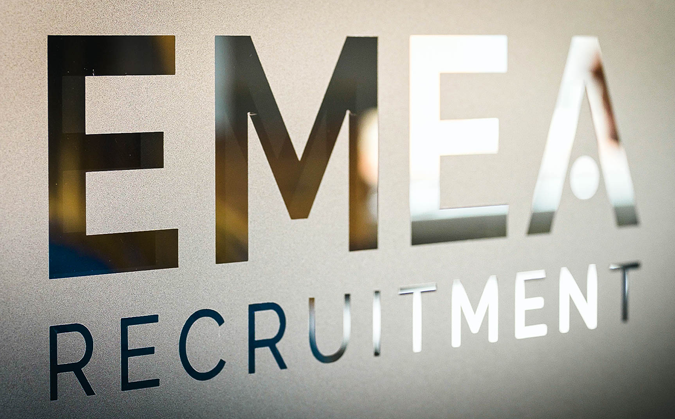
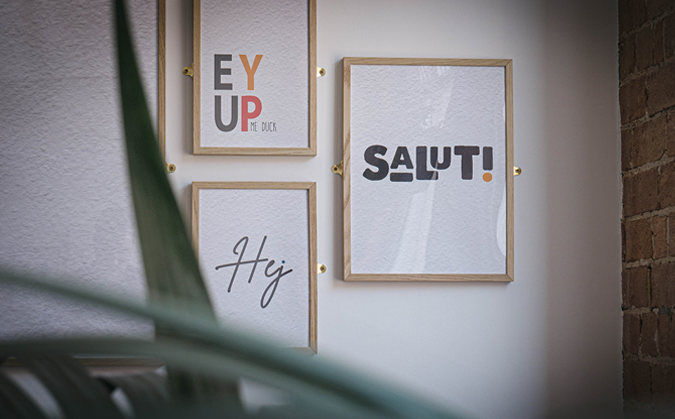

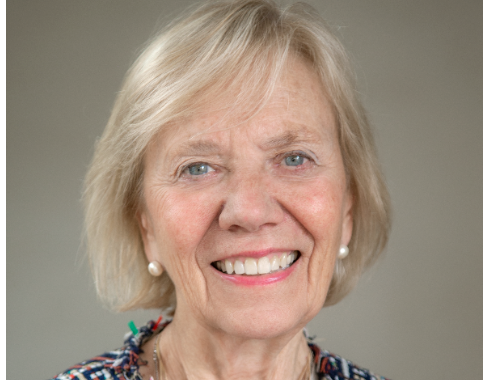
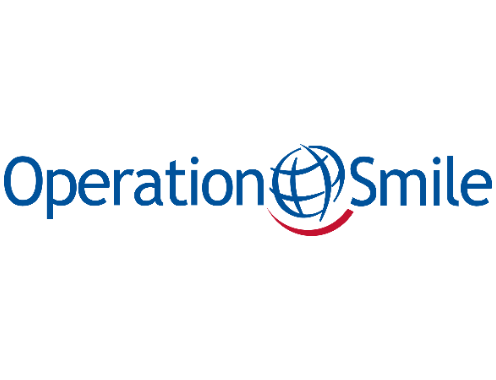

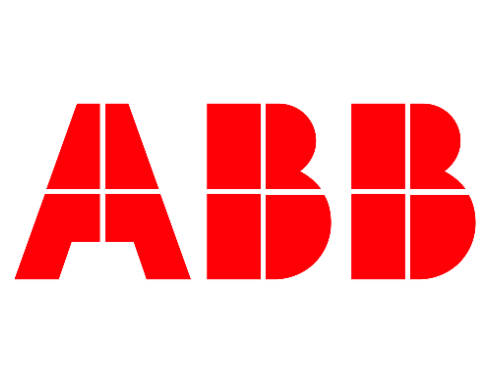
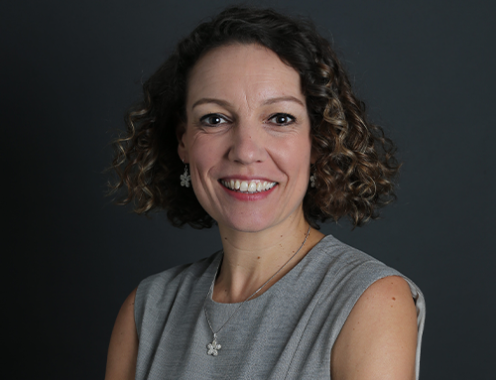













You can also use your social account to sign in. First you need to:
Accept Terms & Conditions And Privacy Policy